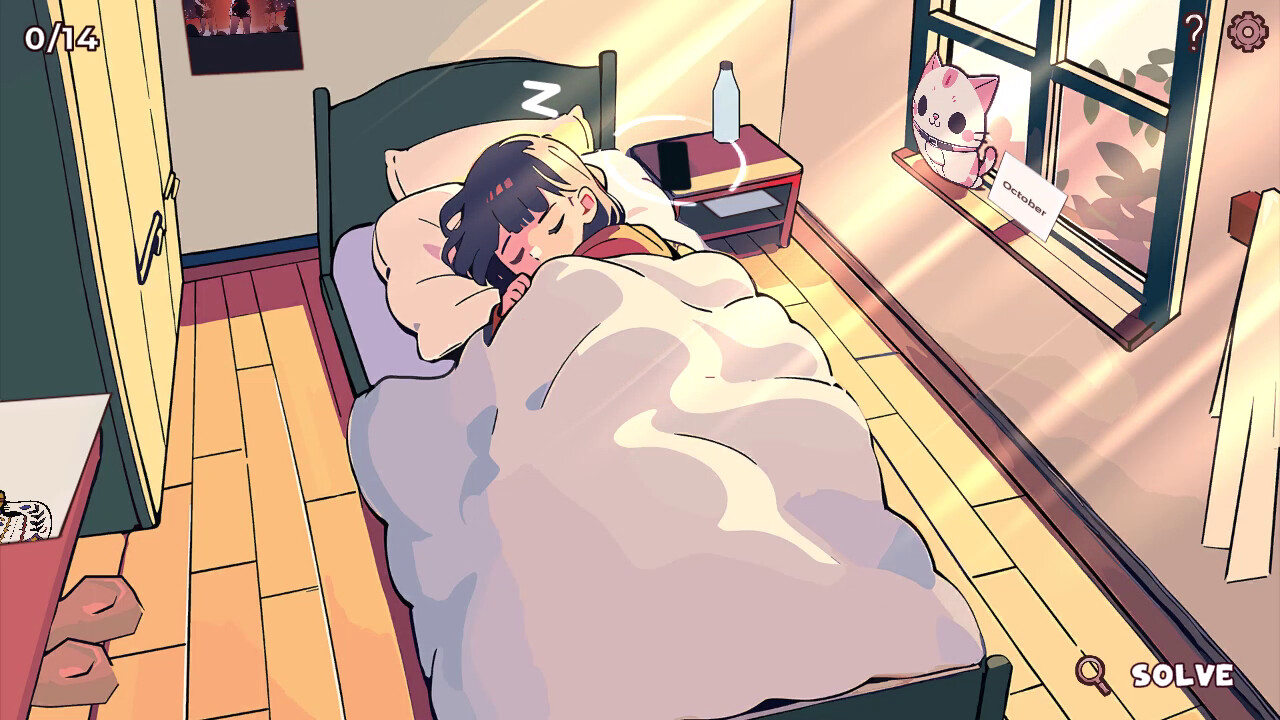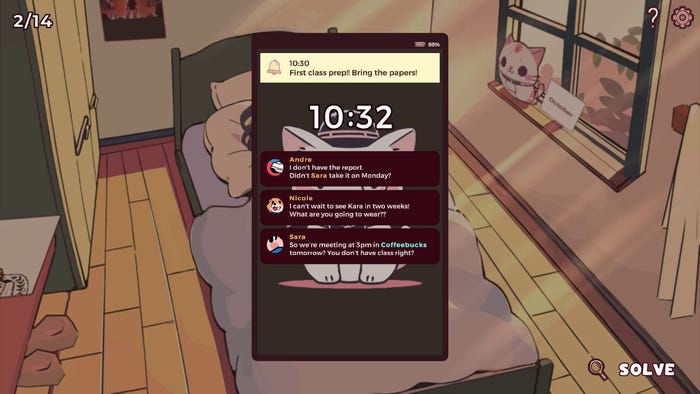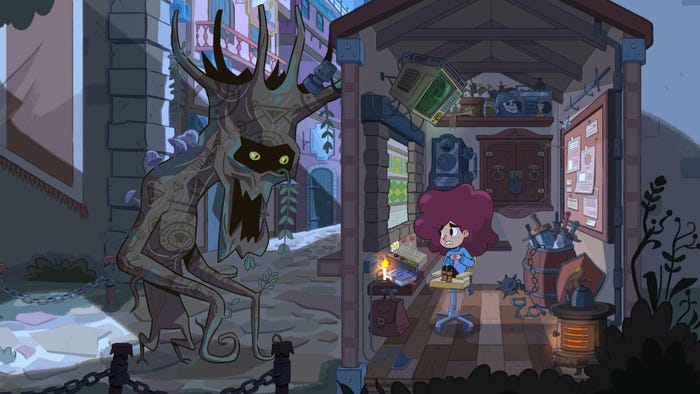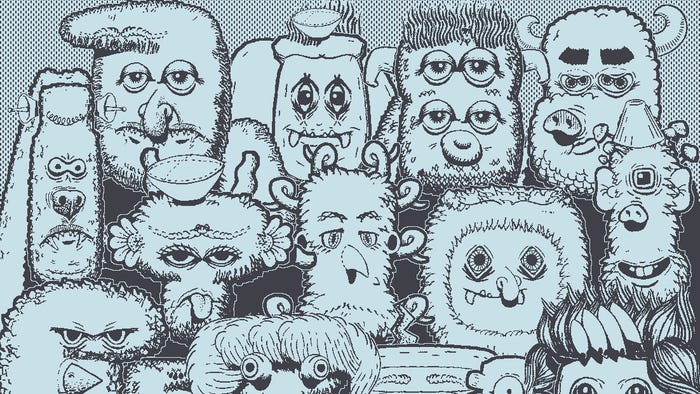Trending
Opinion: How will Project 2025 impact game developers?
The Heritage Foundation's manifesto for the possible next administration could do great harm to many, including large portions of the game development community.
Here's how Papers, Please and Return of the Obra Dinn have inspired the next generation of indie developers.

Last autumn marked both the five year anniversary of Return of the Obra Dinn and the ten year anniversary of Papers, Please. The two major releases from ex-Naughty Dog designer Lucas Pope have left a legacy as big as their ideas. Today, even titles in the cozy game space, as far afield on the surface from Pope’s work as you can get, are taking direct influence from both of these landmark works.
Pope was the solo designer, artist, writer and composer for Papers, Please, a pixelated one screen game where players take on the role of a border agent for a fictional European fascist state. In less than 10 years, that premise —and strong critical acclaim—sold over 5 million copies. A decade later, games like Not Tonight and Death and Taxes have emulated the fun and challenge that Papers, Please found in reading, stamping, and checking documents.
Lucas Pope’s games don’t require twitch reflexes or outside knowledge beyond what the game itself is teaching players. They are perfectly self-contained pedagogy machines. They are also undeniably games for adults who want to think about serious topics.
The new wave of cozy descendants to his games are asking the question, "what if they weren't?" These brilliant rule sets and systems don’t have to be used to depict fascism or solve violent crimes—they can tell any story you want. Using these mechanics to tell stories that speak to a new, younger generation is exactly what the developers of Lil' Guardsman and Little Problems: Cozy Detective Game are trying to do.
When it came out in October 2018, Return of the Obra Dinn made even more of a critical splash. Its mechanics were more immediately easy to categorize on the genre front. It was a mystery game and a puzzle game. Even if the sales didn’t reflect this in quite the same way as Pope’s first hit, the immediate impact in the developer community did. 2022’s The Case of the Golden Idol took this fill-in-the-blank approach to mystery solving and applied it to a different flavor of grisly murder mystery. Both of these titles were a direct influence on the Shanghai-based creator of the upcoming Little Problems: A Cozy Detective Game.
“I really liked the idea of ‘completing a book,’ and that was inspired by Obra Dinn,” the Little Problems developer who goes by the pseudonym Poshcat said. Poshcat’s original vision for a detective game was much closer to Pope’s nautical horror. “When I was developing themes for Little Problems, the original idea was to make a Lovecraft-themed detective game. I got that idea from the monsters in Obra Dinn.”

Posh Cat Studios/Playstack
Horror and monsters weren’t sustainable, though, at least not for Poshcat’s mental health. The over-consumption of violent and gory detective media in early stages of development almost put her off from the idea entirely. But the developer realized that if she felt this way, then surely others must too. “I figured that people in general (including me) just like solving mysteries. It just doesn’t have to be a ‘murder’ mystery.”
Little Problems takes the fill-in-the-blank approach to puzzle solving and applies it to a coming-of-age story inspired by slice of life anime. Players are challenged with solving the everyday mysteries in the life of a college freshman. The ones that come from communally living with a bunch of other 18 year olds.
“I thought hard about what would make people want to solve something,” Poshcat said, listing those universal bad first roommate problems that make us all glad to be past that stage in our life. “Who is it that keeps using your cup without washing it? Who drank the last of the milk and left the carton in the fridge? Which person keeps leaving dirty dishes in the sink without washing them? And who used the last roll of toilet paper and didn’t refill it?”
Lil’ Guardsman is the debut title from Hilltop Studios, a two-man outfit from Toronto, Canada. Best friends Artiom Komarov and Scott Christian came together with the idea to make a game that placed an emphasis on characters and story within a confined space.
“Pragmatically, we wanted something where we could tell a good story with just a couple of set scenes,” Komarov said. The guard booth in Lil’ Guardsman is a cozy-fied border control that is immediately comparable to Papers, Please. Here, as Lil, players make decisions about who to let into the kingdom, and which interrogation methods to use.

Image via Hilltop Studios/Versus Evil/Tinybuild
“We loved that core puzzle mechanic,” Christian said in reference to Pope’s 2013 title. “We used that as a foundational idea and then quickly departed from it. I think there is something in the tension of Papers, Please that’s really hard to replicate and I think we solved that by going in a totally different direction.”
Despite its dire subject matter and lack of good outcomes for its characters, Papers, Please was often a funny game. Its characters were quirky sketches, sometimes with little more to them than an elaborate gag. More so than its shared mechanics, this approach to character is what the recently launched Lil’ Guardsman has most fervently in common with its forebearer. Both games feature a series of interactions with increasingly outlandish characters. Lil’ Guardsman leans more towards the irreverence of classic Lucasarts adventure games like Monkey Island than it does towards Pope’s brand of satire.
For Christian and Komarov, these titles were just as much of an influence as Paper’s Please. In between shifts at the guardsman booth, Lil’ lives a point-and-click life, where players can chat with the various residents of the Sprawl at a series of fixed locales.
Lil has a shape, but she is the player’s to mold. She is a precocious and brainy twelve-year old, but, whether she is wise beyond her years or just sarcastic beyond them is left to the player. There are 176,000 lines of dialogue to support all the possibilities, each one of them voiced. Christian’s background in music and theater allowed Hilltop to tap a vast network of voice performers. The recording studio in his home made full voice acting an achievable goal, one that would help the game’s humor and characters find their voice.
When Lil’ Guardsman begins players meet Lil and her dad Hamish, an oafish castle guardsman. He leaves manning the gate to the player so he can place a bet on Goblinball. The two are giving Lisa and Homer Simpson vibes, until they aren’t. This type of room to grow and play with character is something the structure of Papers, Please gave to the team at Hilltop.
Someone else taking inspiration from Lucas Pope’s earlier work is…Lucas Pope. The designer’s latest title Mars After Midnight was built from the ground up for the Playdate and finds a similar foundation in his earlier work. On its face, the game can be pitched as Papers, Please for an alien support group, but the designer didn’t conceive it that way at all.
“A lot of the same concepts and themes are lurching around in most of my games,” Pope told me. “I approached Mars from a mechanical/hardware perspective first, to build something that fit the Playdate's unique features.”
The novelty handheld uses an analog crank that players wind forward and backwards. In Mars After Midnight, this input is incorporated into every stage of the game. It used to mechanically open and close the shutter through which the player assesses the upcoming aliens for approval, and also as a main input for the title's primary mini-game: cleaning up the refreshments table. By putting these gameplay elements first, Pope felt confined to his own wheelhouse of tricks when it came to narrative design. “From there,” he said, “I more or less ended up in my usual spot, needing lots and lots of characters to fill out the gameplay and the narrative.”

Image via Lucas Pope.
Lucas Pope has gone on record saying that Mars after Midnight is aimed at a younger audience. The game’s dedication even reads “for our kids.” Making things kid-friendly doesn’t mean dumbing them down, and the designer seems especially cognizant of that.
“Games are such a great way to learn about and experience things and kids are so smart and perceptive that it seems a waste to aim low.” Pope said, noting that it wasn’t easy to leave his usual mature themes behind. “The challenge of giving up one of my crutches was fun, though, and it led me to think about what else about my usual sensibilities I could change.”
One of Pope’s sensibilities we hope doesn’t change is his humility. Upon seeing just how influential he was on the developers of Lil’ Guardsman and Little Problems, he wrote “I’m flattered to hear that these amazing looking games take some inspiration from my work.”
Papers, Please is what Scott Christian defines as an anti-cozy game. Of its 20 possible endings, all but two are the bleakest thing imaginable and the one or two “good” endings are merely a cut above surviving.
“I don’t like to die in games. I don’t like to feel bad in games,” Christian said. His design philosophy played into Komarov’s mantra of making failing fun. “We really wanted to keep the player on the rails. And even if we eject them hopefully we're only sending them back 30 seconds [or] a minute.”
Lil’ Guardsman eases the burden with a nifty little device, which I won’t spoil here, that allows you to rewind time and retry interactions or even whole days. Komarov and Christian promised there are long-term narrative ramifications for Lil’s use of this object, but the player is free to exploit its limited charges to experiment and see how different choices can play out and will be judged by the game’s rating system.
Similarly, Poshcat didn’t want players to feel like her game was obtuse or punishing. She did so by implementing a hint system with its own set of inspirations.
“I particularly like the tiered system from The Room series,” the Little Problems developer said in reference to Fireproof Games’ puzzle box series. “Players can get hints, but it starts with easy or general hints first before moving to more specific suggestions. The game won’t just straight out give the answers. Finding solutions because the game gives you the answer doesn’t challenge or satisfy the player.”
Neither Little Problems nor Lil’ Guardsman were made cynically. Each project was born from a love of other games and a desire to iterate on those mechanics. Lucas Pope’s ideas were only part of that equation. Yet, if early indications are to be believed, new audiences are actually showing up for these games: audiences that weren’t there for Papers, Please in 2013. Or were too young to play games back then.
For a young audience, these developers aren’t just adapting the best ideas from Papers, Please or Obra Dinn. The truth is most gamers under 13 won't even know or care who Lucas Pope is. When they play something they like, they will know they like it. What all these games share is a design ethos that respects a less experienced audience’s time and intelligence, without trying to take advantage of it. Making more games that both cater to and respect a younger audience is vital in a world all too willing to start serving up AI generated slop to children.
When we make love letters to the things we adore, that love is felt by the next generation of players. Each of these projects is bursting with a passion for the games that came before it. In doing so, they are extending that love for Pope’s ideas to the next person that comes along and decides to turn their dream game into a reality.
One day the descendants of these games may not bear any resemblance whatsoever to Papers, Please or Return of the Obra Dinn. But Pope’s design ideas will still be there, a foundational piece of the puzzles players one day will be solving.
You May Also Like